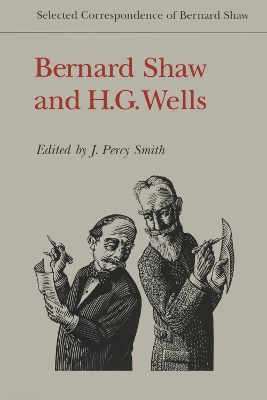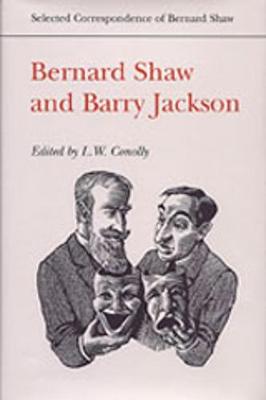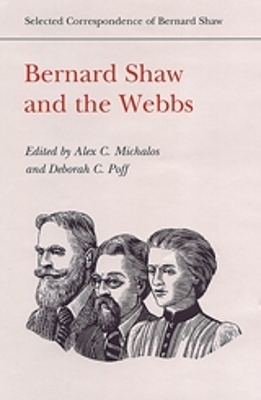Selected Correspondence of Bernard Shaw
3 primary works
Book 2
Bernard Shaw and H.G. Wells are among the best-known and most controversial literary figures of the twentieth century. Both were rebelliously critical of the social and political, familial and sexual conventions and structures of their time. They shared broadly similar interests, but their lifestyles differed sharply - as did their views on many subjects, including those discussed in their correspondence: religion, socialism, science, war and world history, the theatre, the profession of authorship, and more. The letters are always forthright, often abusive and quarrelsome, sometimes suggesting that the relationship cannot last. They are also often warm, good-natured, playful, and generous - reflecting a fundamental mutual respect and similarity of outlook, however contrasting the temperament and style. The great majority of the two writers' correspondence is published here for the first time.
This volumes comprises the personal correspondence of Shaw and Wells through the course of their friendship of more than forty years, and includes and introductory essay by J. Percy Smith. The letters are fully annotated, and are accompanied by information about the circumstances under which each was written, to enable the reader to follow the course of the frequently tempestuous relationship.
This volumes comprises the personal correspondence of Shaw and Wells through the course of their friendship of more than forty years, and includes and introductory essay by J. Percy Smith. The letters are fully annotated, and are accompanied by information about the circumstances under which each was written, to enable the reader to follow the course of the frequently tempestuous relationship.
Book 4
Virtually ignored in histories of twentieth-century British theatre in favour of the more celebrated relationship of Bernard Shaw and Harley Granville Barker, the friendship of Bernard Shaw and Sir Barry Jackson is given prominence in this new book by L.W. Conolly. The collection of 183 letters, all but two of which are previously unpublished, sheds new light on a partnership that for Shaw was the most important of his later playwriting career, and for Jackson was central to his pioneering and acclaimed work in British regional theatre in both Birmingham and Stratford-upon-Avon. Also included are letters from Shaw's wife, Charlotte, and secretary, Blanche Patch, to Jackson. Headnotes with each letter set its context and provide a narrative of the continuing Shaw-Jackson relationship; further notations identify literary, historical, theatrical, and political references and allusions. Of interest to both the Shaw specialist and the drama generalist, this collection of letters represents a significant addition to modern understanding of Shaw and of British theatre.
Book 5
Bernard Shaw was twenty-four and Sidney Webb twenty-one when they met in October 1880 at a gathering of a debating club called the Zetetical Society. Having sympathetic interests, both men decided, after some personal and joint exploration, to devote their lives to improving the human condition. This collection of 140 annotated letters, 74 of which have never been published, documents the subsequent friendship and collaboration shared by Shaw, Webb, and Webb's wife Beatrice, throughout their lives. The letters, written between 1883 and 1946, discuss the founding of the Fabian Society, the British Labour Party, the London School of Economics, and the New Statesman through the Boer, First, and Second World Wars. Fully annotated with headnotes and footnotes, this collection will expand the general view of Shaw the dramatist to incorporate Shaw the political activist and lifelong friend of the Webbs.


